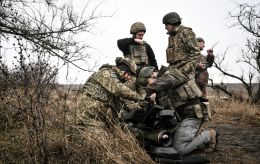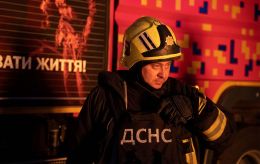'For a second I thought I was dead'. Ukrainian medic 'Klaus' on assaults, injuries, perfect evacuation
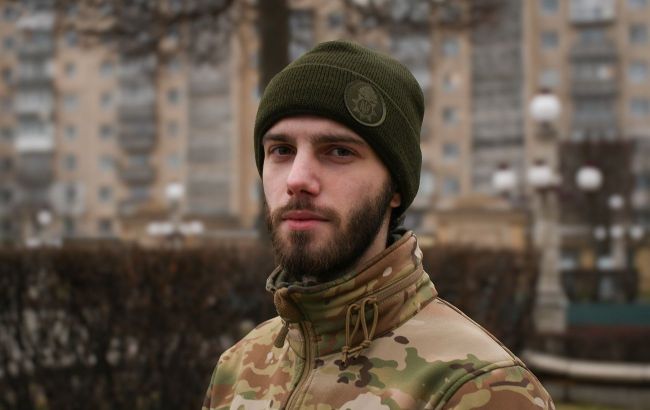 Military medic 'Klaus' (photo: RBC-Ukraine)
Military medic 'Klaus' (photo: RBC-Ukraine)
We met with the combat medic 'Klaus' in a small coffee shop in the city center. It is snowing lightly outside, and “Merry Christmas” is playing in the speakers. But this meeting is not about the holidays. The soldier has recently returned from the front line after being wounded. His story is about the realities of war, where every second can decide a person's fate.
Read about the challenges that medics face on the frontline every day, about responsibility and how to keep working when you need help yourself.
– What motivated you to become a combat medic? Was it a conscious decision or was it forced by circumstances?
– It was an absolutely conscious decision. It was even a childhood dream. I wanted to become a medic since I was a little kid. I have an old Instagram post, I think from 2014, where I captioned a photo: “In 7 years I will become a doctor, check it out.”
In 2015, there was a military parade, very powerful. I was still a teenager at the time, but I remember the medics on it. One of them was carrying a Soviet medical bag, the other a modern one. This scene impressed me so much that I realized: I want to do this. This became my goal.
Later, I learned about the military medical faculty and began preparing for admission. I skipped classes and focused on the External independent evaluation (tests to enter universities in Ukraine). It was my number one goal.
– How did your service begin?
– I went to the military enlistment office as a medical student and explained that I wanted to serve. At that time, a major was sitting in the office, quite young. He looked at me and said: “You are too young, you have everything ahead of you. If they take you, it will be because you have at least some education.” He wrote “Do not agree” on my application and told me to go home.
But I decided otherwise. I applied to a volunteer battalion. When they found out that I was a medic, the interview ended immediately. They took me without any questions.
– What was your first experience at the front?
– I started in a volunteer territorial community formation (VTCF). It was a completely different reality. We had no salary, no documents, no support. We were volunteers in the literal sense of the word.
At the time, I did not realize how dangerous it was. We went to fight as “pirates,” as people sometimes joke now. Just guys with machine guns, with no guarantees. If they had killed me then, I would not even have a grave.
Then Svoboda, where I was a member, was legalized as part of the Rubizh brigade.
– What does a typical day at the front look like for you?
– It all depends on the circumstances. If nothing is happening, it's digging trenches and maintaining positions. But when something happens, everything changes. A message comes over the radio: “300th (a wounded - ed.), coordinates are such and such”. You take your bag, drop everything, and run to the scene.
It all depends on the situation: if it is possible, you work directly on the spot, if not, you evacuate the wounded to the collection point. He is transferred there to the crew of the evacuation vehicle. They already have more equipment and more capabilities.
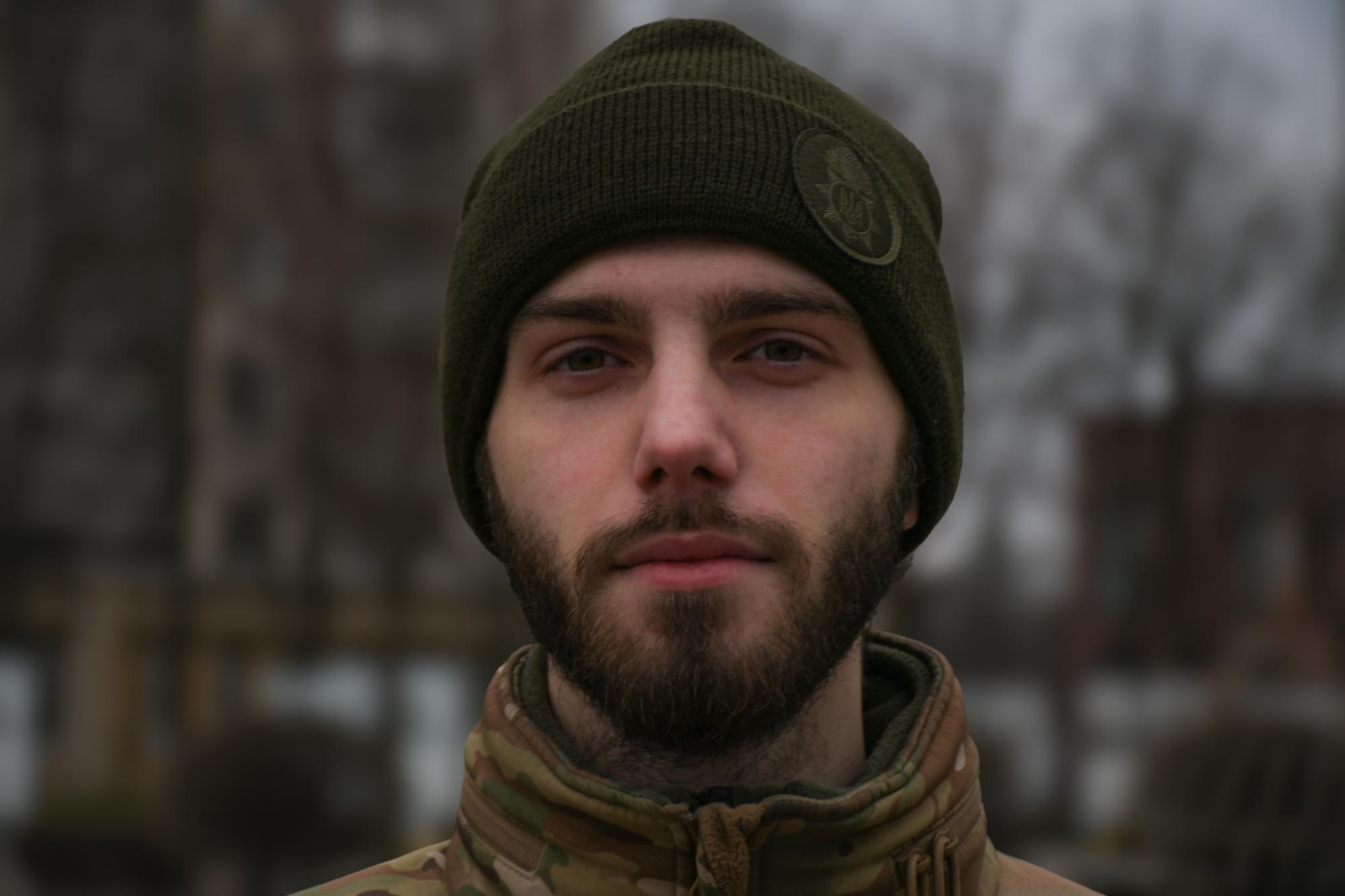
Photo: 'Klaus' has been dreaming of becoming a medic since childhood
– Do you always follow the rule “a doctor must be safe”?
– At first, no. I broke in where I needed to and where I didn't. I thought only about fulfilling my task. Over time, I became more cautious. My comrades-in-arms also began to take care of me more. If we go for an operation, they tell me: “You will be the last one in the column, because if you get wounded, it will be much harder for all of us.”
– I guess knowing that you are in a group makes it easier and more confident to work. What is the hardest part of your job?
– The responsibility. It is an incredibly heavy burden. There are moments when everyone is looking at you and waiting for you to act, and sometimes you don't know what to do, as it was at the beginning of my service. It's scary. Plus, there are moments when you realize that your mistake can cost you a life. This is a burden that is difficult to bear.
– Do you have any stories that have become significant, a new “birthday”?
– There were several moments that I remember well. One of them happened in the Serebryansky Forest, when we were holding our positions. We were sent to reinforce the infantry. We were sitting there, being shelled by artillery all day long, but at the time it seemed that everything was bearable. We were supposed to dig in, but there was not enough space in the gap, so I was sent to the neighboring one. I went there, and an old man from the guard company was sitting there. We smoked and talked.
At that moment, a whistle started blowing over our heads. I instinctively put on my helmet, but he did not. I wanted to look out from behind the parapet to see what was going on because I thought the Russians were approaching us. And then there was an explosion. Hot air hits my face. Everything went dark, the lights seemed to go out.
For a second I thought I was dead. I opened my eyes and realized that I was alive. My grandfather was lying next to me, his head was bloody. I took out a grenade because I thought the enemy was close. But then I realized that an explosive had hit the parapet. I was lucky, my helmet saved me. The old man's head was injured, but he survived and began to show signs of life.
The hot air hit me so hard that at first, I thought my face had been burned. It was very scary. But this incident taught me a lesson. After that, I never take my helmet off again.
– Did you manage to undergo treatment after your shell shock?
– Yes, I was treated, but later, in a surgical specialty.
– This is the injury that sent you here for rehabilitation. Did it happen while performing medical duties?
– I was wounded while performing routine combat missions. You know, a combat medic is not just a medic who performs only medical functions. He is a fighter like any other. The only difference is that they have additional medical equipment and supplies to help them. A medic also has a higher level of training and qualification.
Just as there is a grenade launcher specialist who is skillful with grenade launchers, or a sapper who can mine or demine, a medic is a narrow specialized expert.
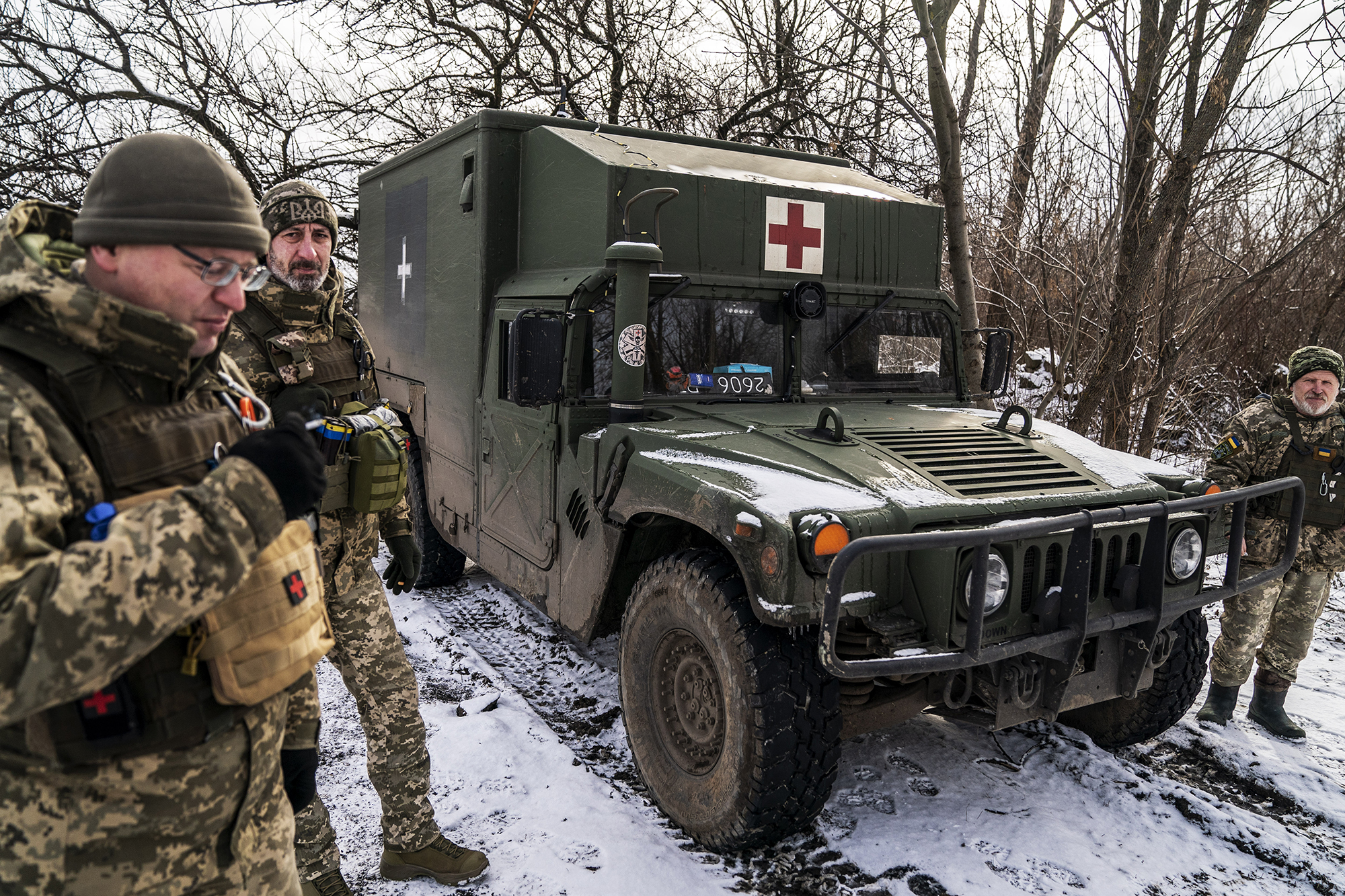
Photo: Experts of all specialties are important in the unit (Getty Images)
– So your function is much broader than just medical?
– In our unit, all specialists are important, because the team must be universal. We complement each other.
– How exactly did you get injured?
– Everything happened unexpectedly and, as always, very trivially. I replaced a fellow soldier who had serious problems with his back - hernias, protrusions, which almost everyone has. He was sent to the medical center with a recommendation to rest for five days.
I had every premonition that the shift would be difficult. Even the crossing of the river turned into an adventure for me - I stepped on a branch that almost broke my leg.
The first two days were more or less normal. But on the third day, I had a premonition: I saw the gasoline tanks and thought it was dangerous. So I dug a small hole in the trench to hide them. Literally an hour later, it started. I heard shouts on the radio that we were being stormed.
– What happened next?
– Everyone quickly gathered, I took a machine gun and started working from a closed position, trying to psychologically influence the enemy. It helped to keep them at a distance. They did not like it. First, they pointed an AGS at me, then I think a mortar or a “boot”. I still don't know what exactly it was.
Suddenly I felt a blast of hot air. At first, it seemed that everything was fine, but my comrades said: “Go to the dugout”. They looked at me and asked: “Are you okay?”. I said: “Yes,” and then I saw that the whole leg was red, I realized that something was wrong. The blood was gushing out, and before that, I felt nothing at all - no pain, no discomfort.
I immediately applied a tourniquet. I applied the first tourniquet myself, but my comrades helped me to tighten the last one because I was already losing consciousness. It was a really scary moment. I rested a bit, drank some water, and came back to my senses. In this state, I managed to provide minimal assistance to other wounded.
– Did you have the strength to help others?
– Well, what could I do? The guys were busy fighting, communicating, controlling. They could not be distracted, it was my job to support them.
I made a bandage, tamponade the wound, and even took off the tourniquet because I started to lose sensation in my leg. I needed to be ready to move on my own.
– How did the evacuation go?
– The assault continued, but two infantrymen came to help me evacuate. I said I would go on my own.
I realized that dragging me was an extra burden for the guys. It was hard enough for them as it was. The guys gave me a smoke grenade because the passage was being shot at with small arms, and they needed to create a smoke screen. At some point, I couldn't hold the smoke grenade - I was so exhausted. The last 30 meters they were just dragging me.
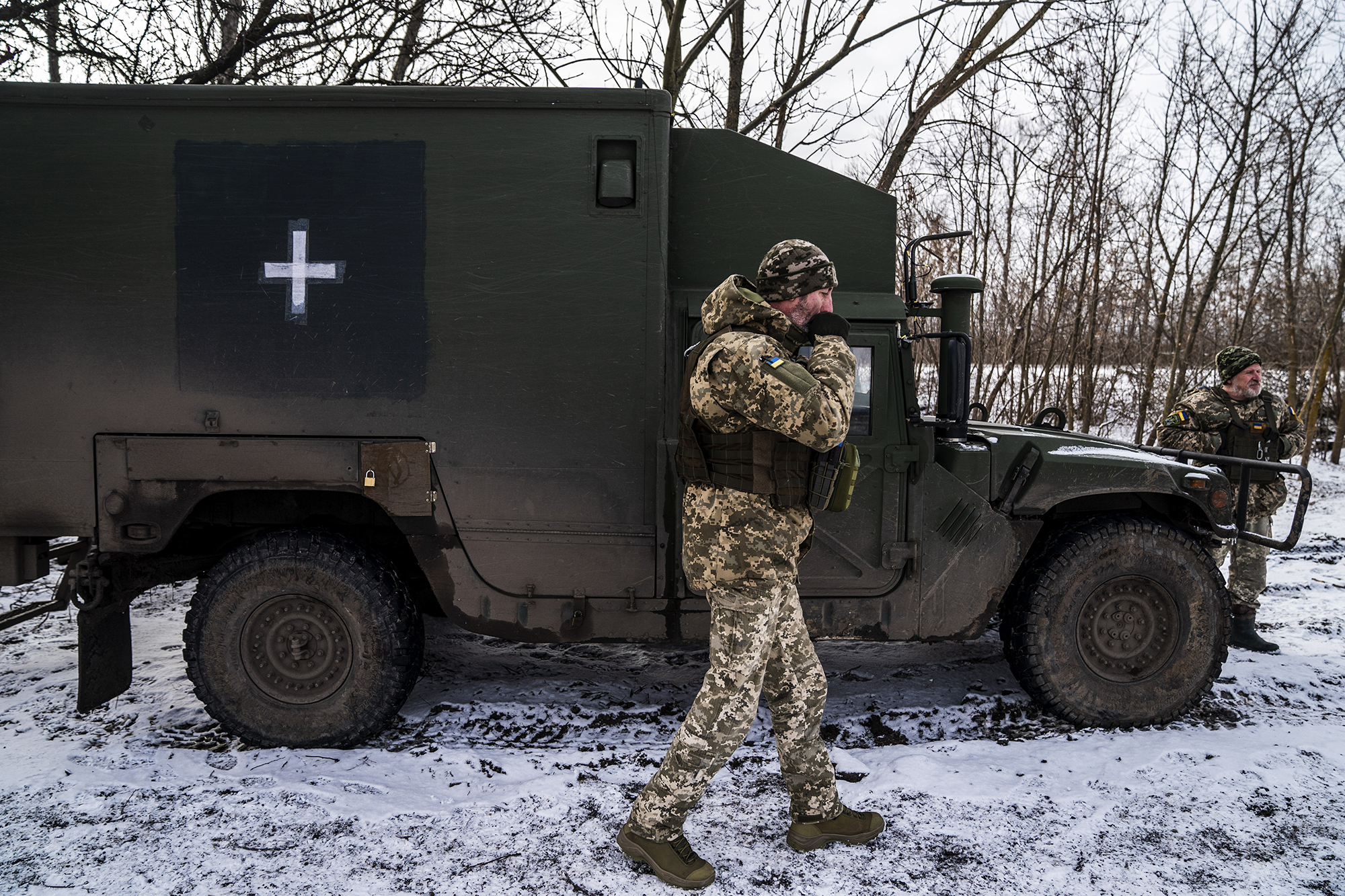
Photo: During each evacuation, medics are at great risk: they can come under fire at any time (Getty Images)
– Are there any difficulties with evacuation?
– As a rule, there are no big problems. But there were situations when, for example, we forgot to refuel the ATV. It was also difficult because of the dangerous situation - it takes time to plan everything properly. You can't just push an ATV into position.
There is a risk that the wounded, the medic, and the driver will be destroyed along with the ATV. That is why we have to wait until the situation stabilizes, until a clear evacuation plan is drawn up and the right people are brought in. This is not due to a lack of equipment or someone's mistakes - it is part of the training.
On my last rotation, I witnessed a perfect evacuation. I even have a GoPro recording of it. We brought the wounded to the evacuation point, and the ATV literally flew into us, and turned the trailer right to the position. We quickly loaded the wounded man, said “ready,” and he immediately took off. The whole thing took about 15 seconds.
It was more of a coincidence, but it looked like a scene from a movie. Everyone had time to scatter to their seats, and everything went smoothly. But such moments prove that when the work is coordinated, everything works out even in the most difficult conditions.
– It's good that you managed to evacuate. I understand that you are now undergoing treatment and can walk normally. Given your experience, how has the situation on the battlefield changed over the three years of full-scale war?
– It has changed dramatically with FPV drones. This is a breakthrough. Imagine, instead of expensive missiles or high-precision shells, there are now drones for $500 that change military doctrine. They completely change the tactics of warfare.
Previously, it was possible to drive vehicles and provide logistics without any problems. Now it is almost impossible.
– What exactly affects this?
– Look at the equipment. All of it is covered with anti-cumulative grilles. And yet there is not a single car that is invulnerable to an FPV drone. It simply does not exist.
An FPV drone can come in and destroy anything, regardless of cost or equipment. And it costs a penny compared to what it can destroy. This is a technology that changes everything from tactics to logistics.
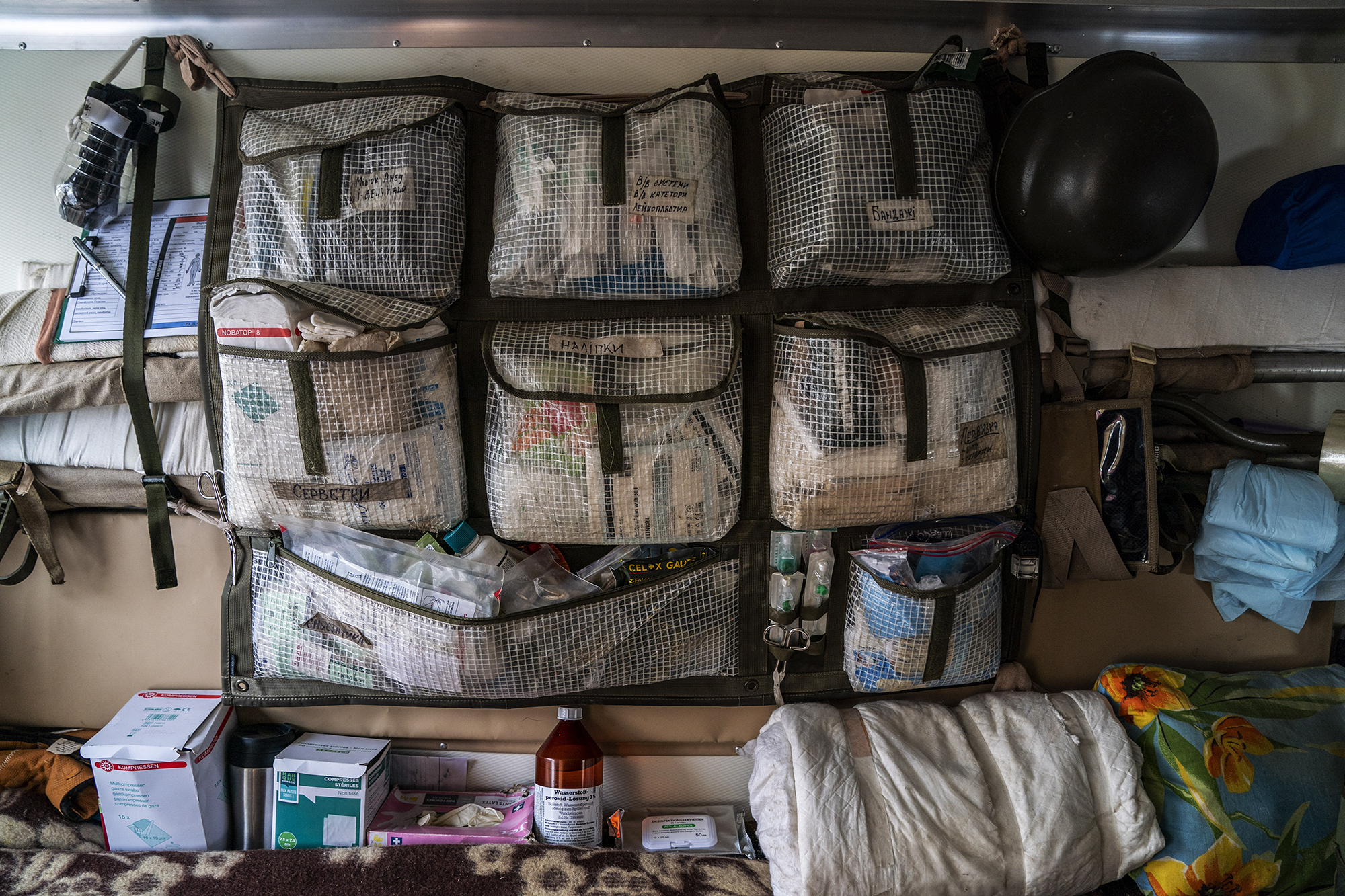
Photo: Medics have the means to rescue soldiers from the front (Getty Images)
– How does this affect daily operations?
– Each new mission is more difficult than the last. Military vehicles on both sides are constantly improving. People are looking for new ways to gain an advantage on the battlefield. We can't even imagine what they might come up with in a year.
It used to be that you could just stand under a tree, not move, and the drone wouldn't see you. Now it doesn't work that way. Now the drone will come and find you, even if you are hiding.
Even the basic rules have changed. Now it is important to keep a distance from each other. We have to cover the trenches so that the drone doesn't throw something right under our feet. This means you need more materials: nets, branches, camouflage.
– You know from the inside how the medical system works in the army. What do you think are the problems with medical training?
– First of all, there is a lack of attention to tactical medicine training. I did not serve in the medical service, I was a medic in a regular combat unit. But from what I've seen, sergeants need to focus more on teaching the personnel basic things. Not some advanced methods, but the basics.
– What exactly do you mean by “basics”?
– For example, applying tourniquets or tamponade. These are things that save lives, but they need a practice. Not just read or watch a video, but try it at least on a simulator. Tamponade is a skill that cannot be mastered without practice.
It's not comparable to real life. The simulator has its own nuances: you know where to press to stop the blood so that everything works. But when you work with real injuries, it is a completely different experience.
I remember practicing tamponade on the simulator. And then I had to do it in real conditions when I worked on my own wound. This is a completely different feeling, a different difficulty.
– How do you propose to solve these problems?
– Such basic things should become routine, such as, for example, weapon blanking. They need to be repeated regularly. This is a matter of survival, and it must be clearly enshrined in the training of every soldier.
There was a case. We were evacuating the injured, and I saw that the tourniquet was not applied correctly, the sling was twisted. And this was done by someone who confidently said he knew how to do it.
This is an example of why you can't take someone's word for it. You need to constantly check and practice so that people really know how to do it. Because it's not just theory, it's life.
.jpg)
Photo: All Ukrainians need to know tactical medicine now, the military man is convinced (Getty Images)
– Looking at the society of 2022 and the society of today, do you feel a difference? Has your attitude toward Ukrainian society changed?
– Frankly speaking, I hate everyone around me. And the whole world too. I have more understanding for the enemy than for some civilians. You know, I understand my enemy. There is a man sitting 300 meters away from me, just like me. He gets cold and then hot. He is as afraid as I am, but he wants to kill me. And I want to kill him.
We are in the same conditions. Because this is a warrior's approach, I understand it. If you put aside ideology and everything else, we are the same in our essence. But when you come back to civilian life, not even home - you just open social media, the first thing you see is a wave of filth.
– What exactly outrages you?
– You go to Starlink, open a social network, and what do you see? A post about the TСR (Territorial Center of Recruitment - ed.), and they are called enemies of Ukraine. And in the comments, dozens of people write how bad they are because they “take people to war.”
And what does that mean? Are the TCRs at war? The TCRs take people to defend the country. But this wave of hatred is not because the Russians planted something. No, we are inventing this for ourselves, we believe in this nonsense and we are the ones who are fanning it.
How many information wars have we lost? Three, five, ten? It seems to me that the Russian services that are engaged in fake news don't even need to be paid anymore. Ukrainians invent fakes for themselves, believe in them, and dispel them themselves.
This is a problem. We can drown ourselves. We don't need to look for an external enemy - we are destroying everything with this excuse and betrayal.
All those who wanted to go to war, who wanted to defend Ukraine, have already done so in three years. Some of them did it voluntarily, others at the call of their hearts. And now you see how those who stayed in the rear are creating this wave.
– What would you like to say to society?
– We need to stop looking for the guilty where there are none. Otherwise, we will not cope with the war, even if we win on the battlefield.
